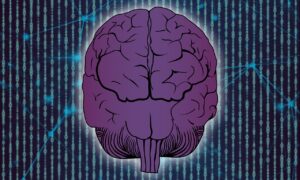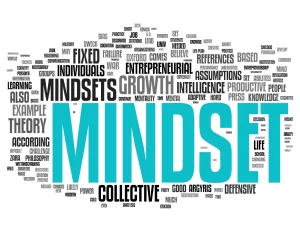A limited mindset, also known as limited thinking or a rigid mindset, refers to a patterned way of thinking that restricts one’s potential and hinders personal growth. It is characterized by fixed beliefs, narrow perspectives, and resistance to change.
People with a limited mindset tend to view challenges as obstacles rather than opportunities, and they often fear failure and avoid taking risks. This mindset can be detrimental to personal and professional development, as it prevents individuals from exploring new possibilities and reaching their full potential.
The dangers of a limited mindset
Having a limited mindset can have several negative consequences. For starters, it limits one’s ability to adapt to new situations and embrace change.
When faced with unfamiliar circumstances, individuals with a limited mindset may feel overwhelmed and struggle to find innovative solutions. This can hinder their professional growth and limit their opportunities for success.
Secondly, a limited mindset can lead to missed opportunities. By sticking to familiar routines and avoiding new experiences, individuals with a limited mindset may fail to recognize and seize potential opportunities for growth and development.
They may become stuck in a comfort zone, unwilling to step outside of it and explore new possibilities.
Furthermore, a limited mindset can negatively impact relationships. People with a limited mindset may struggle to empathize with others and understand different perspectives.
This can lead to conflicts and misunderstandings, as they may be resistant to considering alternative viewpoints. In turn, this can hinder collaboration and limit personal and professional growth.
Signs that you have a limited mindset
Identifying whether you have a limited mindset is the first step towards breaking free from its constraints. Here are some common signs that you may have a limited mindset:
- Resistance to change: You find it difficult to adapt to new situations and are reluctant to try new things.
- Fear of failure: You avoid taking risks and stepping outside of your comfort zone due to a fear of failure.
- Closed-mindedness: You are unwilling to consider alternative viewpoints and are resistant to new ideas.
- Rigid thinking: You tend to see things in black and white, without considering shades of gray or complexities.
- Lack of curiosity: You have little interest in learning new things or exploring different perspectives.
The benefits of expanding your horizons
Expanding your horizons and breaking free from a limited mindset can have numerous benefits. The first thing it does is allow for personal growth and development. By embracing new experiences and perspectives, you open yourself up to a world of possibilities and opportunities.
You become more adaptable and resilient, better equipped to navigate life’s challenges and embrace change.
Secondly, expanding your horizons broadens your understanding of the world. By seeking out diverse influences and engaging with different cultures, you gain a deeper appreciation for the richness and complexity of human experiences. This can enhance your empathy and understanding, enabling you to build more meaningful relationships and collaborate effectively with others.
Furthermore, expanding your horizons fosters creativity and innovation. By exposing yourself to new ideas and ways of thinking, you can break free from rigid thought patterns and explore alternative solutions. This can lead to breakthroughs and new perspectives, both in your personal and professional life.
How to break free from a limited mindset
Breaking free from a limited mindset requires self-awareness, perseverance, and a commitment to personal growth. Here are some strategies to help you expand your horizons and cultivate a growth mindset:
Recognizing and challenging your thought patterns
According to research, 75% of our self-talk, the words we use to define ourselves or make sense of our behavior, are negative. Consequently, we subconsciously restrict ourselves, stunt our personal development, and stomp out our aspirations. Therefore, how do we escape? How can we get out of this mental rut?
If you want to avoid limited thinking, start by becoming aware of your thought patterns and beliefs. Notice when you are engaging in limited thinking and challenge those thoughts. Ask yourself if there are alternative perspectives or possibilities that you may be overlooking.
By consciously questioning and reframing your thoughts, you can begin to break free from the constraints of a limited mindset.
Strategies for cultivating a growth mindset
The term “growth mindset” refers to an attitude toward overcoming obstacles and failings. People who have a growth mindset feel that their talents can be improved through time, despite the fact that they may have difficulty mastering specific skills. They believe that if they put in the effort, their talents would improve with time.
The fixed mentality is held by those who believe that talents cannot be improved upon and should be accepted for what they are. They have the mindset that no matter how hard they work, they won’t be able to enhance their talents.
Cultivating a growth mindset involves embracing a belief that your abilities and intelligence can be developed through dedication and hard work. Here are some strategies to help you cultivate a growth mindset:
Embrace uncertainty and take risks
Step outside of your comfort zone and embrace new challenges. Embracing uncertainty can lead to personal growth and open doors to new opportunities. Willpower and a shift in perspective are required in order to successfully learn how to move beyond one’s comfort zone.
Every action you take to push yourself beyond of your comfort zone will result in increased personal development, knowledge, and ultimately, achievement.
Seek new experiences and perspectives
The phrase “get out of your comfort zone” is one that we hear quite frequently, and in my experience, it is sound advice to follow in order to avoid being stagnant in whatever it is that you are attempting to grow better at.
When you step outside of your comfort zone, you’re probably going to have to do something that you didn’t anticipate or that you don’t already know how to accomplish. It is beneficial to put yourself in situations that challenge you to adapt and evolve as well as break through any plateaus you may have reached.
Participate in pursuits that present you with the opportunity to learn about new societies, ways of thinking, and points of view. Explore the world, read extensively, and have thought-provoking exchanges with individuals whose experiences are far different from your own.
Surround yourself with diverse influences
Surround yourself with individuals who come from various backgrounds and have had a variety of experiences. To increase the breadth of your awareness of the world, you should have interactions with people and look for perspectives that are different from your own.
The power of continuous learning and personal development
The practice of acquiring new competencies and areas of expertise on an ongoing basis is referred to as “continuous learning.”
This can take many different forms, from attending a formally structured class to picking up new skills via casual interaction with others. It requires taking initiative on one’s own and being up for a challenge. Continuous learning may take place both in the context of a business and on an individual level, as is the case with lifelong learning.
The important this is that you never stop learning. Take courses, attend workshops, and read books that expand your knowledge and skills. By continuously learning and seeking personal development, you can break free from a limited mindset and embrace new possibilities.
Overcoming obstacles and setbacks in expanding your horizons
Expanding your horizons and breaking free from a limited mindset is not always easy. It requires perseverance and resilience. When faced with obstacles or setbacks, remind yourself of the benefits of personal growth and the value of embracing change.
Use setbacks as learning opportunities and adjust your approach if necessary. Remember that progress is not always linear, and setbacks are a natural part of the growth process.
Celebrating your progress and maintaining a growth mindset
As you make progress in expanding your horizons and cultivating a growth mindset, take time to celebrate your achievements.
Recognize and acknowledge the steps you have taken towards personal growth. Celebrating your progress can help reinforce your commitment to maintaining a growth mindset and inspire you to continue exploring new possibilities.
Conclusion
Breaking free from the chains of a limited mindset is a transformative journey. By recognizing the signs of a limited mindset, understanding its dangers, and actively seeking to expand your horizons, you can unlock your full potential and embrace a world of possibilities.
Cultivating a growth mindset, challenging your thought patterns, and embracing new experiences are key strategies to breaking free from the limitations that hold you back.
Remember, personal growth and development are ongoing processes, and by continuously striving to expand your horizons, you can create a life filled with fulfillment and success.
Start your journey towards personal growth today by embracing new experiences and challenging your thought patterns. Break free from the chains of a limited mindset and unlock your full potential.
Related article: Developing a Practical Mindset: Unleashing Your Full Potential




No comments! Be the first commenter?